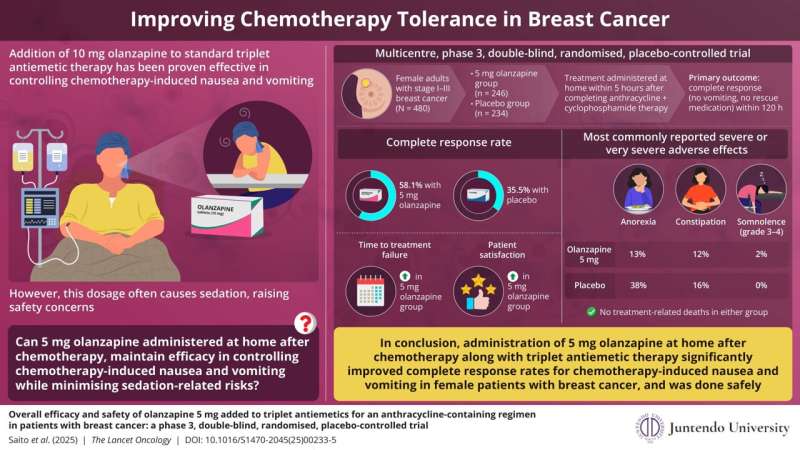Understanding Nausea and Its Causes
Feeling nauseated or queasy is an unpleasant sensation that most people experience at some point. When nausea strikes at night, it can be disruptive and make it difficult to fall asleep.
Nausea refers to the urge to vomit. Your stomach may feel unsettled, you might produce extra saliva, and you could start burping. Nausea can arise periodically or persistently from a variety of triggers.
By understanding the common causes of nausea, especially at night, you can take steps to prevent and treat it to help you sleep better.
What Is Nausea?
Nausea originates in the brain, not the stomach. When your brain receives signals that something is wrong with normal digestion or bodily processes, it provokes the nausea response.
The vomiting center in the brain stem communicates with other regions to coordinate nausea symptoms. Increased production of dopamine and serotonin play a role.
Areas involved include:
- Chemoreceptor trigger zone - reacts to toxins and substances in the blood
- Vagus nerve - carries signals from the GI tract to the brain
- Inner ear - senses motion disturbances
- Cerebral cortex/limbic system - processes unpleasant reactions
When stimulated, these pathways initiate nausea symptoms urging the body to expel the disturbing substance via vomiting. Nausea serves as a protective mechanism against toxins or illness.
Common Causes of Nausea
Many factors can trigger someone to feel nauseated. Common causes include:
- Food poisoning
- Viral gastroenteritis (stomach flu)
- Motion sickness
- Early pregnancy
- Migraines
- Food allergies
- Medication side effects
- Overeating
- Emotional stress/anxiety
- Gallbladder disease
- Concussions
Sometimes determining a specific cause for nausea is straightforward, like after eating spoiled food. Other times, nausea results from multiple factors that require investigation into what is provoking it.
What Triggers Nausea at Night
While nausea can strike any time of day, feeling sick to your stomach during the night can disturb sleep. Certain issues tend to promote nausea at night more than others.
Gastroesophageal Reflux Disease (GERD)
GERD causes stomach acid to back up into the esophagus, provoking nausea. Lying down allows reflux to occur more readily. The nausea can wake you up at night.
Medications
Some medications list nausea as a side effect. The doses or medication combinations you take during the day can accumulate, causing nausea to arise at night.
Overeating Before Bed
Eating a heavy meal right before lying down can bring on nausea. Your digestive system has trouble handling large food volumes when horizontal.
Peptic Ulcers
Ulcers may cause indigestion after eating and nausea when the stomach is empty. Nocturnal pain can also wake you up nauseated.
Pregnancy
Nausea from hormonal changes strikes many women in early pregnancy. Nausea often peaks in the morning but some women feel ill at night too.
Anxiety
Stress and anxiety can significantly upset the digestive system. Nighttime tends to be associated with heightened worry over insomnia, work, finances, etc.
Food Sensitivities
Food allergies or intolerances to ingredients like lactose, fructose, or gluten may trigger delayed nausea after dinner, including during the night.
Gastroparesis
When the stomach has impaired motility, gastroparesis results. Undigested food sitting in the stomach provokes nausea and vomiting.
Cyclical Vomiting Syndrome
This rare disorder causes repeated, severe nausea and vomiting. Episodes can awaken sufferers during the night.
Migraines
Migraines often involve nausea and even vomiting along with headache. Migraine attacks can occur during sleep, rousing people from sleep with nausea.
Medication Withdrawal
Stopping some medications abruptly can trigger rebound nausea a few days later, including at night. Examples include antidepressants, pain relievers, and blood pressure drugs.
Treatments for Nighttime Nausea
Finding relief when nausea strikes at night starts with identifying potential causes. Follow these tips to help treat nocturnal nausea:
Avoid Heavy Meals Before Bed
Refrain from eating big portions within 2-3 hours of bed to allow digestion to complete before lying down. Stick to light snacks like cereal, yogurt, or fruit.
Elevate the Head in Bed
Use pillows or foam wedges to keep your head elevated at a 30 degree incline or higher. This reduces reflux of stomach contents.
Take Antacids
Over-the-counter antacid tablets help neutralize excess stomach acid and control reflux and ulcer-related nausea. Avoid overuse.
Use Acupressure
Massaging acupressure point P6 on the inner wrist may help calm nausea. Seabands apply gentle pressure on this point.
Try Ginger
Ginger has a long history of settling upset stomachs. Drink ginger tea, use supplements, or nibble ginger candies. But avoid ginger if you have a clotting disorder.
Take Medications
Your doctor may prescribe anti-nausea medications like promethazine, metoclopramide, or ondansetron. But these can cause side effects.
Avoid Triggers
For nausea tied to foods, migraines, motion sickness or medications, avoid identified triggers. A food journal can help uncover problem foods.
Practice Relaxation Techniques
When anxiety is contributing to nausea, calming practices before bedtime like meditation, deep breathing, yoga, or listening to soothing music may help.
Stay Hydrated
Sipping water, herbal tea, or diluted fruit juice prevents dehydration that can worsen nausea. But avoid large fluid volumes which may provoke vomiting.
When to See a Doctor
Occasional transient nausea typically doesnt require medical evaluation. But contact your doctor if any of the following apply:
- Nausea persists over 2 weeks
- You experience significant weight loss
- Nausea interferes with job or relationships
- You have difficulty keeping down food/liquids
- You have signs of dehydration from vomiting
- You have fever, headache, stiffness or rash
Seeking prompt medical care helps diagnose any serious condition requiring treatment, like infections, bowel obstructions, or kidney problems. For chronic unexplained nausea, medications or neuromodulation devices can help.
When Nausea Wakes You from Sleep
If you drift off to sleep fine but then awaken during the night feeling nauseated, look at the timing for clues to potential causes:
Early Night Nausea
Nausea 1-2 hours after dinner could indicate food poisoning, food sensitivities, peptic ulcers, or gallbladder issues. It may signal delayed digestion.
Middle of the Night Nausea
Gastroenteritis viruses can cause nausea around 3-5 am. Migraines also frequently strike in the wee morning hours. Some medications wear off at night, provoking nausea.
Early Morning Nausea
If nausea arises around 4-6 am, pregnancy is a prime suspect due to hormones peaking. Low blood sugar upon wakening, migraine patterns, or onset of flu can also blame.
Keep a diary of any nighttime nausea episodes to help spot patterns and likely causes. Discuss your observations with your doctor.
When to Seek Emergency Treatment
While typically just an annoyance, severe or persistent nausea can sometimes stem from serious illnesses requiring emergency medical care. Seek prompt treatment if you experience:
- Fever over 101F with nausea/vomiting
- Confusion, fainting or uncontrolled vomiting
- Bloody/coffee ground appearing vomit
- Prolonged vomiting over 24 hours
- Severe pain or tenderness in the abdomen
- Inability to keep down any food or liquids
- Signs of liver problems like yellowing eyes/skin
Rapid treatment for potentially dangerous causes like intestinal blockages, sepsis, kidney problems, or diabetic ketoacidosis can prevent serious consequences. Dont hesitate to seek emergency help for debilitating nausea/vomiting.
When to See a Gastroenterologist
If your primary doctor is unable to pinpoint the origin of persistent nausea after basic testing, seeing a gastroenterologist for specialized care may be advisable. Signs it may be time for a referral include:
- No relief after 8 weeks of nausea treatment
- Weight loss over 10 pounds from reduced appetite or vomiting
- Ongoing nausea interfering with normal activity
- Nausea causing dehydration or electrolyte imbalances
- Need for frequent hospitalization for nausea/vomiting
A gastroenterologist has specialized expertise in diagnosing and treating chronic conditions provoking nausea like gastroparesis, peptic ulcers, and gastroesophageal reflux. They can help develop an effective treatment plan.
When Nighttime Nausea Requires ER Visit
Severe or persistent nighttime nausea can stem from serious conditions requiring prompt emergency medical treatment. Seek emergency care for:
- Fever over 101F with nausea/vomiting
- Bloody or coffee ground appearing vomit
- Inability to keep down food/liquids for over 24 hours
- Signs of dehydration like dizziness or concentrated urine
- Sudden, severe abdominal pain
- Confusion, fainting, seizures, or uncontrolled vomiting
These red flag symptoms could indicate life-threatening illnesses like bowel obstruction, diabetic ketoacidosis, kidney disorders, or appendicitis. Dont wait with concerning nausea symptoms that fail to improve or worsen. Seek prompt ER treatment.
Strategies to Prevent Nighttime Nausea
While not every case of nausea can be avoided, you can take certain steps to help minimize your chances of nighttime nausea:
- Eat smaller, earlier dinners
- Avoid foods triggering sensitivities
- Manage chronic health conditions like reflux, diabetes, or migraines
- Stay well hydrated during the day
- Reduce stress and anxiety
- Carefully adjust timing of medications
- Stop smoking and limit alcohol intake
- Sleep with head elevated if reflux is an issue
Paying attention to diet, health habits, and lifestyle factors that influence nausea can help reduce the frequency and severity of episodes.
Know When to Seek Medical Help
Occasional nausea typically doesnt require a doctors visit. But contact your physician promptly if nausea:
- Persists daily for over 2 weeks
- Prevents keeping down food/water
- Causes significant weight loss
- Is accompanied by fever, headache or stiff neck
- Is accompanied by worrisome symptoms like blood in vomit
Left untreated, persistent nausea can lead to dehydration, malnutrition, and electrolyte imbalances. Speaking to your doctor helps diagnose and treat any underlying illness.
The Bottom Line
Nausea at night can have myriad causes including infections, migraines, pregnancy, stress, medications, or underlying digestive disorders. Identifying triggers and seeing your doctor for an evaluation are key first steps.
Avoiding dietary triggers, using antacids, trying natural remedies, proper head elevation in bed, and medicine if needed can tame nighttime nausea. Seek prompt medical attention for any concerning symptoms that appear serious.
Controlling nausea is possible by uncovering the source and using appropriate treatment measures tailored to your situation. Achieving relief lets you sleep peacefully through the night.
FAQs
Why do I feel nauseous at night but not during the day?
Lying down can aggravate nausea from GERD, ulcers, or delayed digestion. Some conditions like pregnancy and migraines cause worse nausea at night. Medications can accumulate and lead to nausea when sleeping.
How can I relieve nausea when trying to sleep?
Tips to relieve nighttime nausea include eating small, early dinners, using antacids, avoiding food triggers, elevating your head in bed, sipping fluids, and using natural remedies like ginger.
When should I worry about persistent night nausea?
See your doctor if nausea lasts over 2 weeks, causes weight loss, prevents normal eating/drinking, or comes with fever or other concerning symptoms. This could indicate an underlying illness.
Can anxiety cause nausea at night?
Yes, anxiety and stress often worsen at night and can upset digestion. Relaxation techniques before bed like deep breathing, meditation, or yoga may help.
Should I go to the ER for severe nausea?
Seek emergency care if you have uncontrolled vomiting, bloody vomit, high fever, severe pain, inability to drink/eat, signs of dehydration, or other dangerous symptoms that require prompt treatment.
Disclaimer: This article is for informational purposes only and does not constitute medical advice. Always consult with a healthcare professional before starting any new treatment regimen.
Related Coverage
Learn about ondansetron side effects, how to manage them, and what to expect during treatment for nausea and vomiting....
Find effective chemo-induced nausea relief with low-dose olanzapine, diet tips, and safe strategies to stay strong during treatment....
When you feel sick to your stomach, use creative euphemisms like “tossing cookies” or “driving the porcelain bus” instead of saying “throwing up.” More polite and funny synonyms for vomiting....
Nausea is a common side effect of fasting. Drink water, use acupressure, take supplements like ginger, and relax to ease symptoms. See a doctor if nausea is severe....
Nausea involves feeling like you may vomit. Pregnancy, infections, medications, digestive issues and motion sickness are common causes. Treatments include medications, lifestyle changes and addressing underlying conditions....
Explore the potential causes of tea-induced nausea, such as caffeine, tannins, and acidity, and discover effective strategies to prevent and alleviate this discomfort....
Today's porn saturation has normalized monotonous, male-centric sex routines. Women report predictability and laziness leaving them turned off and nauseated....
Find out the correct ondansetron dosage for adults and kids, timing, forms, and safety tips to relieve nausea quickly and safely....
Queasiness describes an unsettled stomach sensation related to early nausea without necessarily vomiting. Causes include medication, motion sickness, stress, food triggers....
Do you feel nauseated at night as a female? Discover common causes like hormones, acid reflux, stress, food sensitivities. Get tips to prevent and treat nausea....








